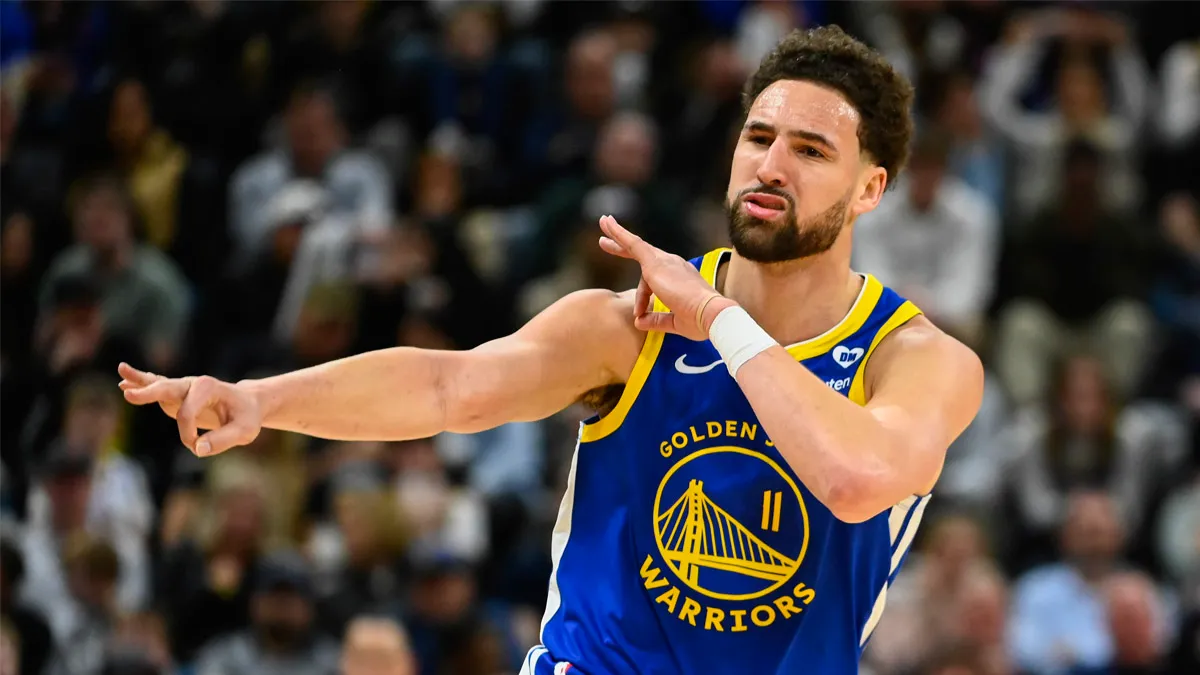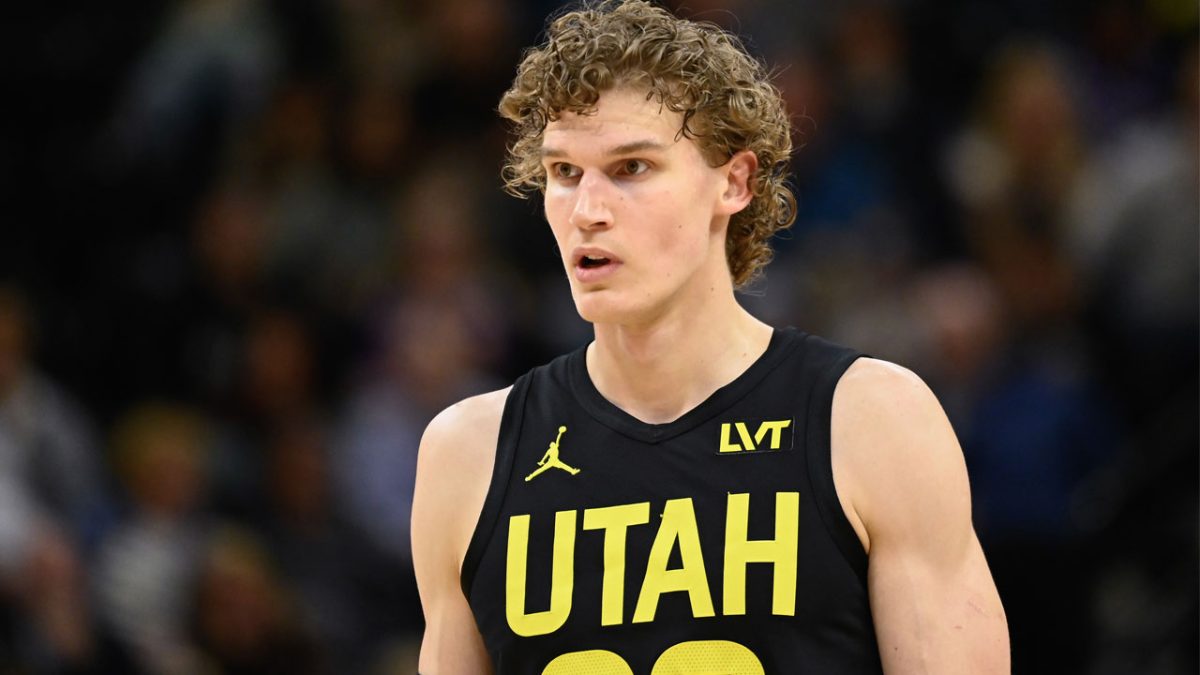As Anthony Edwards danced down the court and waved goodbye to Denver Nuggets fans Sunday night, Tim Connelly’s grand plan was complete. The Minnesota Timberwolves’ ultimate goal still requires eight more wins, but to ever have a chance at lifting the Larry O’Brien Trophy, Connelly knew the Wolves first would have to scratch and claw their way to taking Denver down from the mountain top.
Pieces will continue to be written and multiple deep dives will be done in the coming days on how Connelly, the Timberwolves' president of basketball operations, spent nearly a decade building the Nuggets, only to leave right before they won their first NBA championship and then create a team to beat the champs in these Timberwolves.
Minnesota was made with one team in mind: Connelly’s former employers. The first team that was in the Warriors’ path to the title in 2022 failed to repeat as champions, stopped in their tracks in the second round. The second team that was on the Warriors’ road two years ago, the Memphis Grizzlies, watched a lost season go by and currently are prepping for the No. 9 pick in the 2024 NBA Draft. But the third and final Western Conference roadblock the Warriors had to put away before reaching the NBA Finals is back in the conference finals for the second time in three years.
Stay in the game with the latest updates on your beloved Bay Area and California sports teams! Sign up here for our All Access Daily newsletter.
The Dallas Mavericks have changed exponentially since the Warriors needed five games to end their bid for the Finals two seasons ago, with a handful of moves Golden State can learn from.
First, let’s remember the Mavs’ starting five from Game 5 of the 2022 conference finals.
Luka Dončić had an inefficient near triple-double of 28 points, nine rebounds and six assists. He’s still there, of course. Dwight Powell, Dallas’ starting center at the time, had two points and two rebounds. He’s still there, but started only nine games this season and has played just under 15 total minutes in the playoffs this year with five DNPs (Did Not Play).
Dorian Finney-Smith scored 13 points in nearly 40 minutes. He’s now with the Brooklyn Nets and averaged his fewest minutes per game since the 2018-19 season. Reggie Bullock played almost 38 minutes and scored six points. He played 44 games for the Houston Rockets this season and averaged a paltry 2.2 points in 9.5 minutes per game.
Golden State Warriors
Sure, Jalen Brunson was Dončić’s backcourt mate in those conference finals. Not this Jalen Brunson, though. Brunson scored 10 points on 3-of-10 shooting in that loss to the Warriors, his last game as a Mav. Even when he was underrated and underutilized in Dallas, nobody could have predicted an All-NBA player for the New York Knicks who would be fifth in MVP voting.
Now, Dončić’s backcourt mate is a drama-free version of Kyrie Irving, who has settled perfectly into his role as the second option at 32 years old. That’s the first avenue the Warriors will have to explore this offseason. Where and how can they find the Mavericks’ next Irving, or their own next Andrew Wiggins from two years ago?
In a much longer offseason than usual, names like LeBron James, Kevin Durant, Paul George and more will be thrown around as possible future Warriors. That’s all fun and creates conversation with so much blank space to cover, but the Warriors’ most likely path to pairing someone with Steph Curry is another reclamation project on the trade market.
Wiggins and Irving are different players and different people. Irving’s stock was at its lowest for a handful of concerning reasons off the court when the Mavericks acquired him from the Nets last year before the trade deadline for Finney-Smith, Spencer Dinwiddie and three draft picks. The Warriors were able to buy low on Wiggins after years of him not living up to expectations as a former No. 1 overall draft pick, flipping D’Angelo Russell for the second-best player on a title team and a pick that became Jonathan Kuminga.
Warriors general manager Mike Dunleavy has his work cut out for him this offseason, and likely will have to creatively use Chris Paul’s non-guaranteed contract of $30 million to find Golden State’s next version of a 2022 Wiggins. And Wiggins might be involved in that deal, too. Possibly even Kuminga, Moses Moody or a different asset to do so.
The highest plus/minus by a Mavericks starter when they gave the top-seeded Oklahoma City Thunder an early exit on Saturday was from Derrick Jones Jr., who was a plus-18 in 40 minutes with 22 points on 6-of-13 shooting. The Mavericks signed Jones to a one-year, league-minimum contract as their last roster addition on Aug. 18. Like Otto Porter Jr. and Gary Payton II were for the Warriors two years ago, Jones has been integral to the Mavericks’ success on the cheap.
Look back at winner and loser articles after the trade deadline. Almost nowhere will you find the Mavericks as winners, and yet hindsight shows us they easily won the deadline when Dallas added both P.J. Washington and Daniel Gafford in separate trades on Feb. 8. How often does one of the final four teams find two impact starters at the deadline? Dallas did that by sending Richaun Holmes and draft compensation to the Washington Wizards for Gafford, as well as Grant Williams and Seth Curry to the Charlotte Hornets, along with a 2027 first-round pick that had a light protection on it, to acquire Washington.
In Games 2, 3 and 4 of the conference semifinals, Washington was Dallas’ leading scorer. He has averaged 14.3 points and 6.8 rebounds in the playoffs while shooting 40.7 percent from three. Gafford averaged a career-high 11.2 points in the regular season after the trade, and just averaged 11.0 points and 7.5 rebounds against OKC. His backup, rookie Dereck Lively II, who the Mavs found at No. 12 in last year’s draft, averaged 11.5 points, 12.5 rebounds and a plus-24 in Dallas’ last two wins.
The Mavs were the No. 8 seed, not even a playoff team, at 29-23 when they traded for Gafford and Washington. Their final regular-season record of 50-32 had them as the No. 5 seed, five spots ahead of the Warriors despite winning only four more games than them. Would the Warriors have been a 50-win team by adding a Gafford and Washington at the deadline? Could they possibly still be playing?
Both questions have real life to them. The conference finals will be played by a No. 1 seed, No. 3 seed, No. 5 seed and No. 6 seed.
The Wolves’ ascension and roster construction deserves the spotlight. How the Mavericks were built to reach the West finals two years after losing to the Warriors also can't be ignored by anyone, Golden State included.
Download and follow the Dubs Talk Podcast


